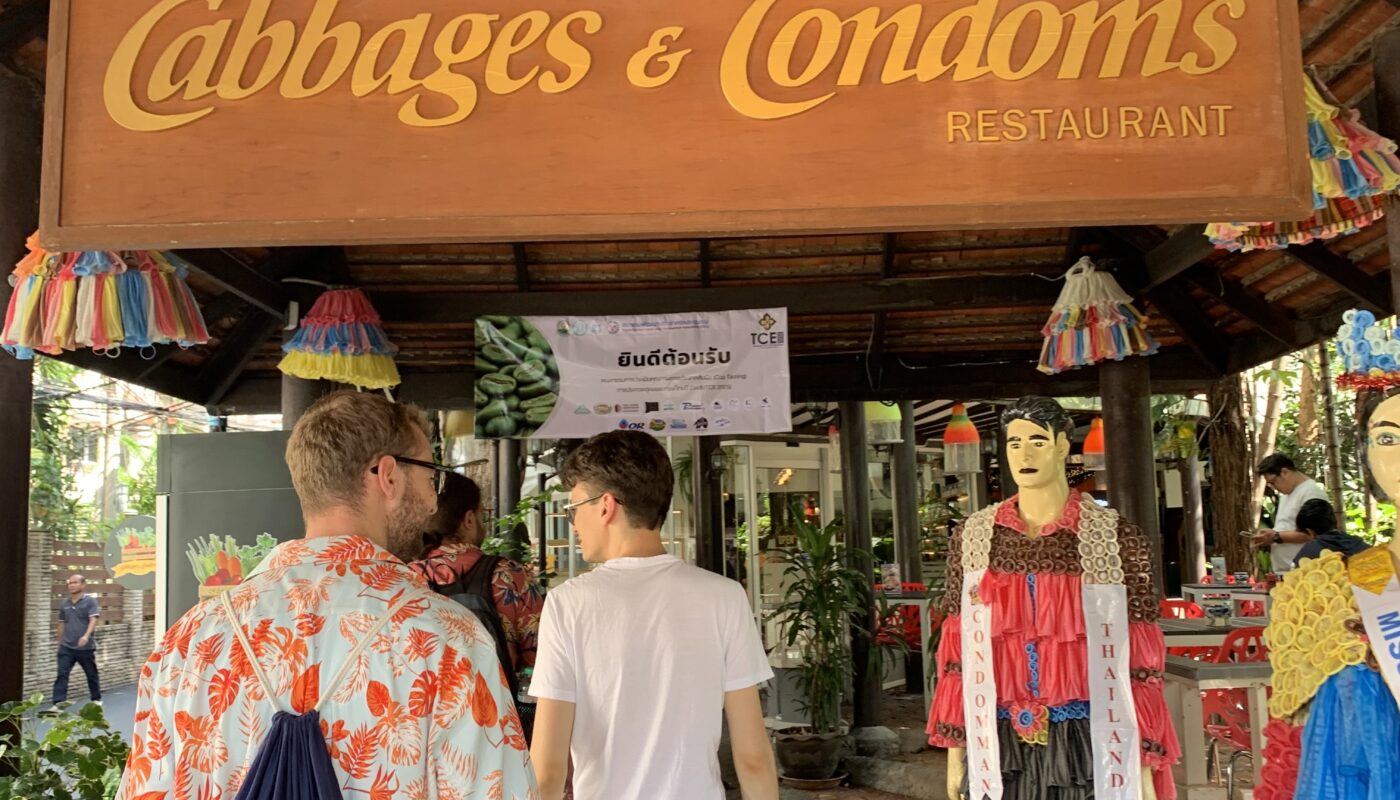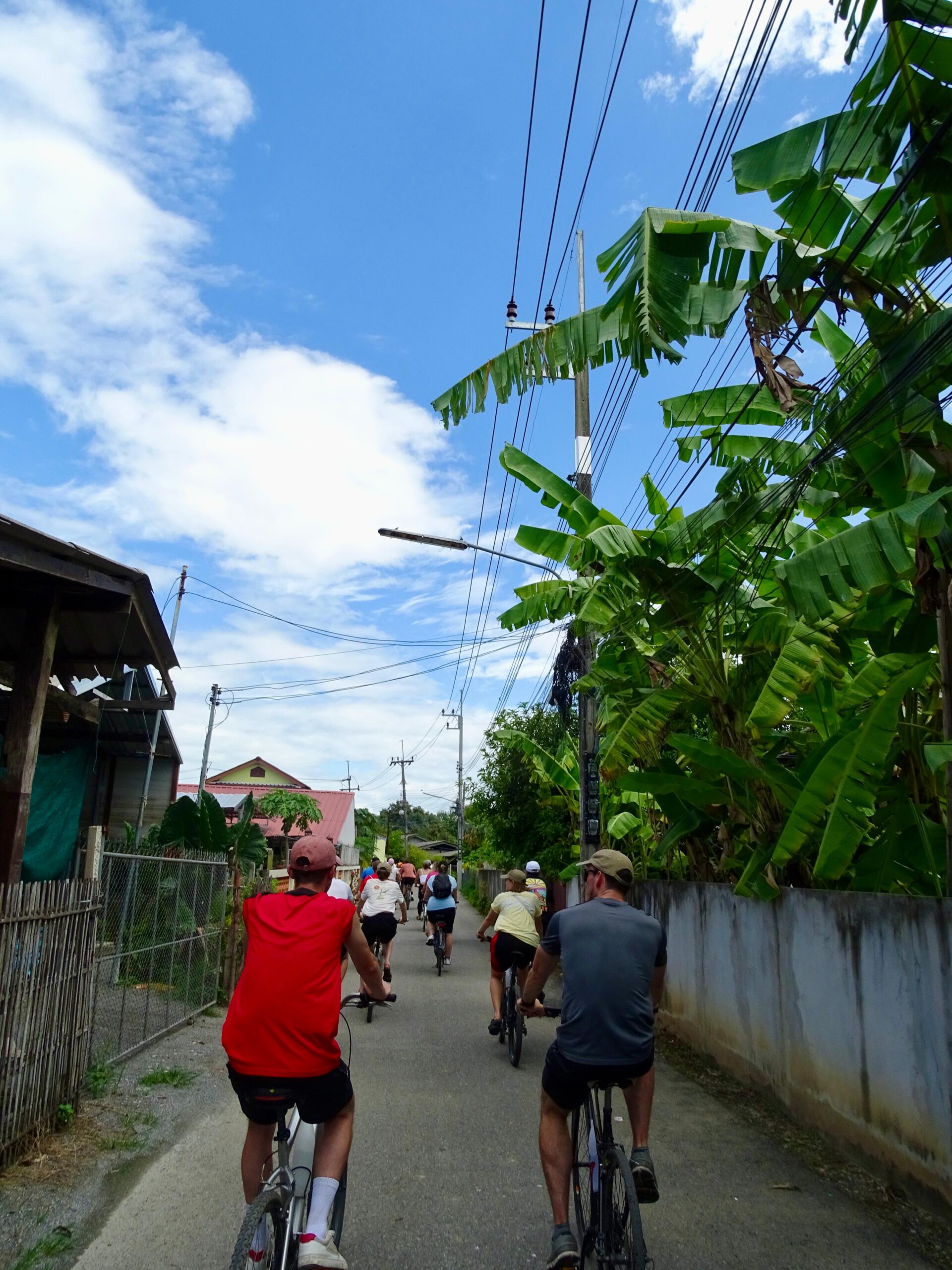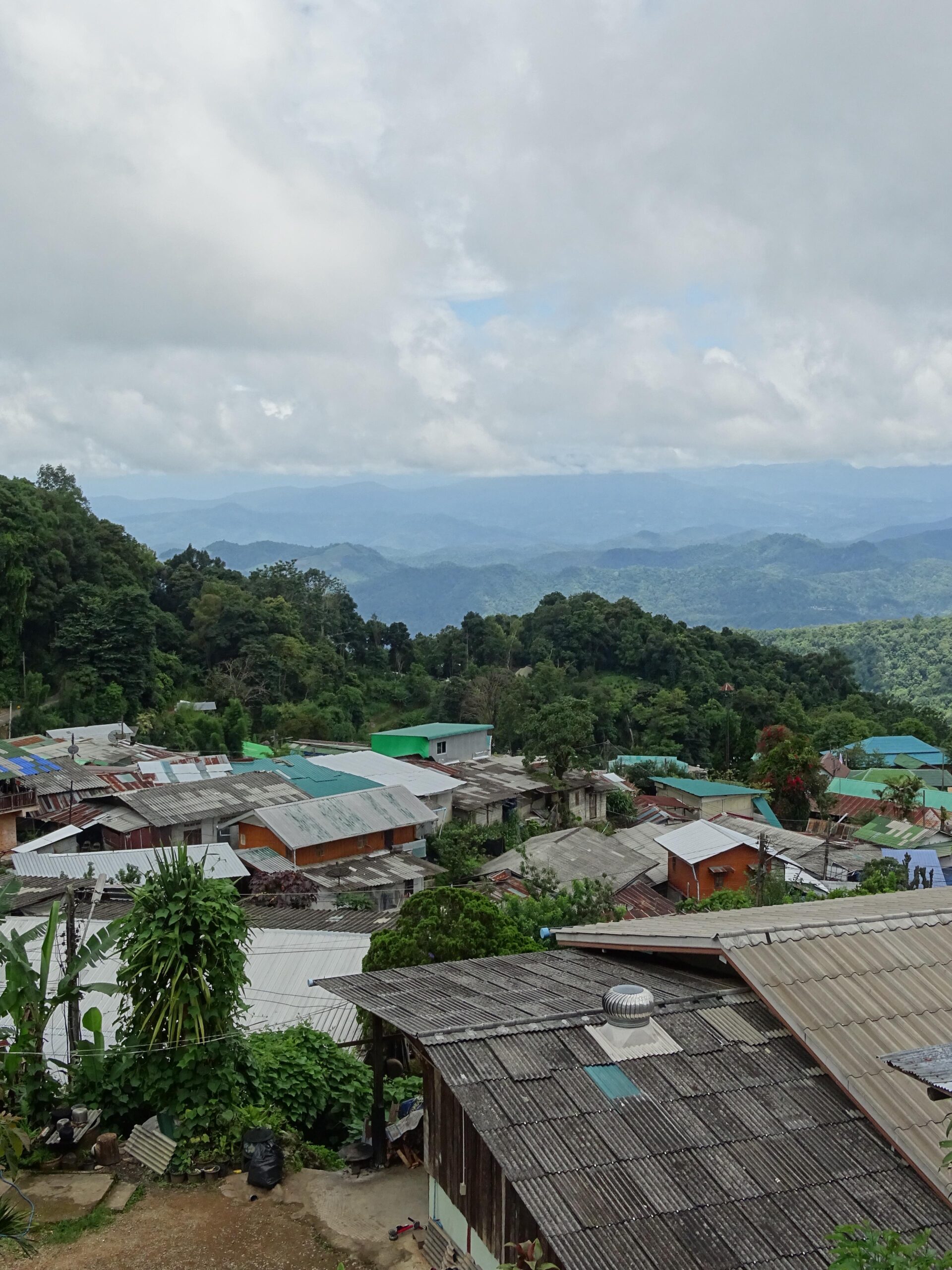Heute startete unsere Exkursion am Nachmittag nach dem Einchecken ins Hotel in der Sukhumvit-Area in Bangkok mit dem ersten Programmpunkt bei der Population and Community Development Association (PDA), einer bedeutenden NGO in Thailand. Gegründet 1974 von Dr. Mechai Viravaidya, wurde uns die Arbeit der Organisation durch ein Mitglied in einer Präsentation mit anschließender Fragerunde nähergebracht.
Im Zentrum der Arbeit stehen Aufklärungskampagnen zur HIV/AIDS-Prävention sowie Maßnahmen zur Stärkung ländlicher Gemeinschaften. Die PDA orientiert sich an fünf Leitsätzen:
1. Reducing Birth: Shopbesitzer:innen werden geschult, Verhütungsmittel anzubieten und über Familienplanung zu informieren, mit dem Ziel, die Geburtenrate nachhaltig zu senken.
2. Reducing Death: Aufklärung über HIV/AIDS und kostenlose Kondomverteilung an öffentlichen Orten, welche auch durch staatliche Akteure unterstützt werden.
3. Reducing Poverty: Vergabe von Mikrokrediten zur Förderung lokaler Kleinunternehmen in ländlichen Regionen.
4. Reducing Financial Dependence: Eigenfinanzierung durch Spenden und Einnahmen aus Restaurant, Shop und Hotelbetrieb.
5. Reducing Ignorance: Schüler:innen übernehmen Verantwortung im Schulalltag und lernen durch praktische Projekte soziale und unternehmerische Kompetenzen.
Den Tag ließen wir bei einem gemeinsamen Abendessen im „Cabbages & Condoms“-Restaurant ausklingen. In entspannter Atmosphäre und bei ausgezeichnetem Thai Food klang der erste Exkursionstag stimmungsvoll aus.
In Hinblick auf unseren thematischen Fokus zeigte die PDA, dass man Ungleichheit und Armut durch ihre fünf Leitsätze effektiv bekämpfen kann. Sie zeigten auf eindrucksvolle Weise, wie sozioökonomische Herausforderungen durch innovative, kreative und praxisnahe Maßnahmen verbessert werden können. Es war sehr eindrucksvoll aufgezeigt zu bekommen, wie viel eine NGO in relativ kurzer Zeit erreichen kann – sowohl alleine als auch mit verschiedenen Akteuren wie Politik, Militär und Privatwirtschaft. In Hinblick auf Österreich könnten wir uns keine NGO vorstellen, die einen dermaßen großen Einfluss innerhalb der gesamten Bevölkerung erreichen kann.
After checking into the hotel in the Sukhumvit area of Bangkok, our excursion started today in the afternoon with the first item on the agenda at the Population and Community Development Association (PDA), an important NGO in Thailand. Founded in 1974 by Dr. Mechai Viravaidya, the work of the organization was explained to us by a member in a presentation followed by a Q&A session.
Its work focuses on awareness campaigns for HIV/AIDS prevention and measures to strengthen rural communities. The PDA is based on five guiding principles:
1. reducing birth: store owners are trained to offer contraceptives and provide information about family planning with the aim of reducing the birth rate in the long term.
2. reducing death: education about HIV/AIDS and free condom distribution in public places – also supported by state actors.
3. reducing poverty: granting microloans to promote local small businesses in rural regions.
4. reducing financial dependence: self-financing through donations and income from restaurants, stores and hotels.
5. reducing ignorance: pupils take on responsibility in everyday school life and learn social and entrepreneurial skills through practical projects.
We rounded off the day with dinner together at the Cabbages & Condoms restaurant. In a relaxed atmosphere and with excellent Thai food, the first day of the excursion ended on a high note.
With regard to our thematic focus, the PDA showed that inequality and poverty can be effectively combated through its five guiding principles. They showed in an impressive way how socio-economic challenges can be improved through innovative, creative and practical measures. It was very impressive to be shown how much an NGO can achieve in a relatively short time – both alone and with various actors such as politics, the military and the private sector. With regard to Austria, we could not imagine any NGO that could achieve such a great influence within the entire population.
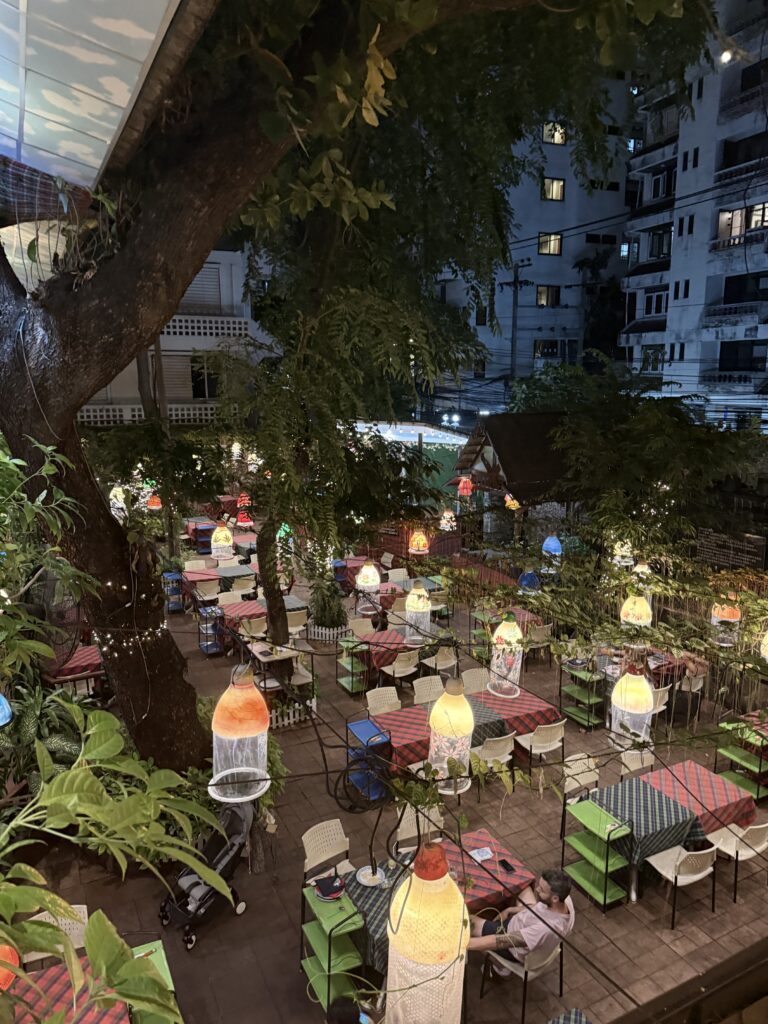
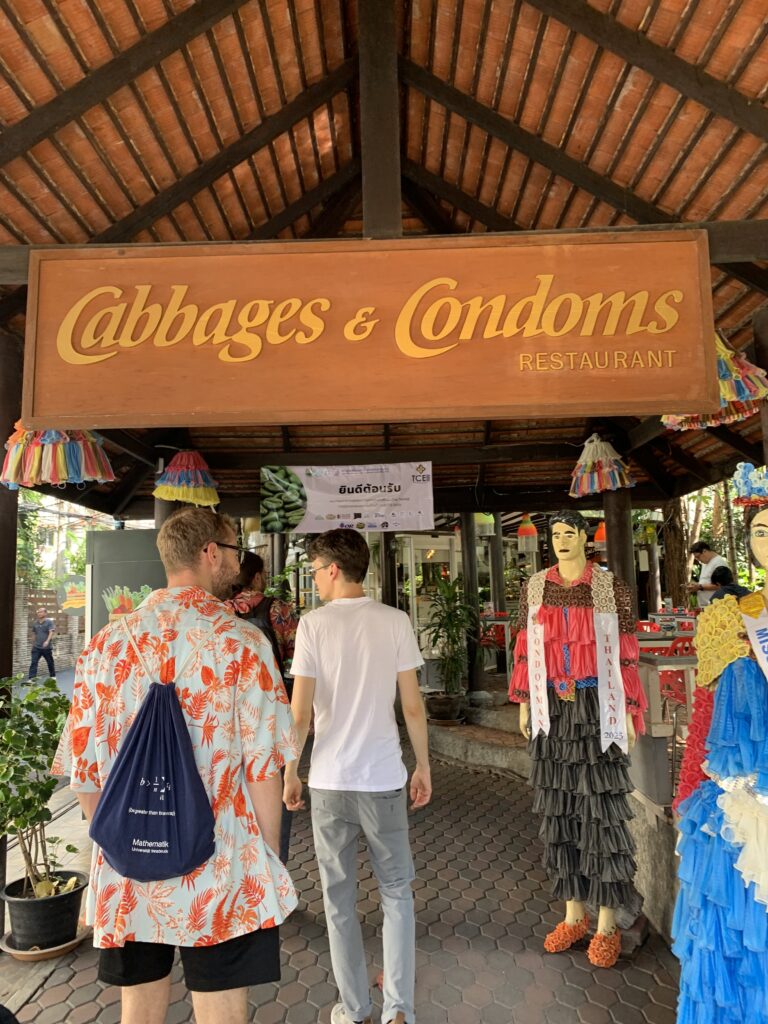

Fotos: eigene Aufnahmen

 von
von 